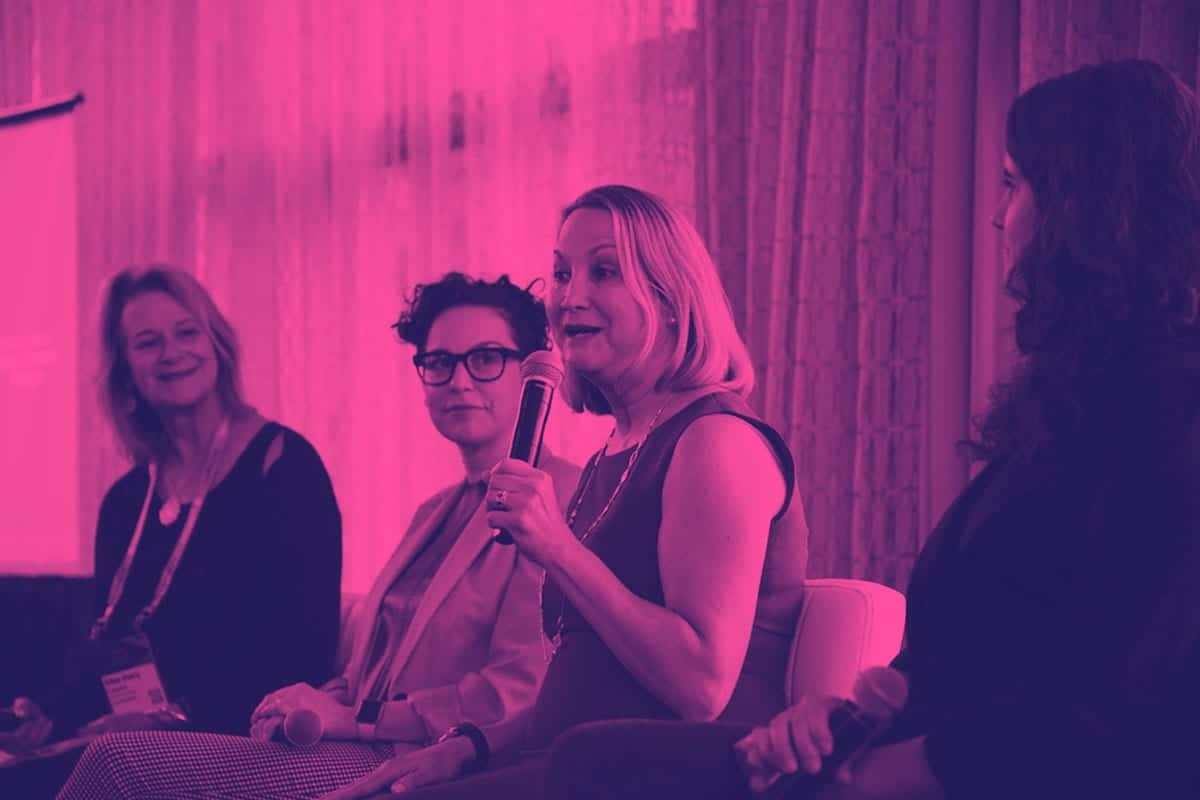The Future of AI Is Inclusivity
Challenges in the past and future of AI according to ACTIVATE Women in AI panelists

“Snap snap. Love it.”
You can’t sum up Activate’s Women in Search and AI lunch any better than Ellen Petry Leanse, chief people officer of Lucidworks, approving a panelist’s response.
The panelists emphasized AI’s ability to have a positive impact on individuals and the world. To have that impact, they said, we must remain focused on humans – both as developers and users.
The discussion was a study in both gender and age diversity, with panelists’ experience ranging from 35 years to less than a decade.
It’s safe to say that Alex Flynn from SAS was a pioneer for women in tech. In earlier days, she would set up meetings with men, many of whom were surprised when she turned out to be a woman. Today, she is more vocal and more easily offers opinions — and if she had the chance to talk to her 12-year-old self, she would tell her to stick with her interest in mechanical things and believe in herself.
Candace Marks from Getty Images has been on the business side of tech since her HBO “Sex and the City Days.” She’s interested in solving the “I’ll know it when I see it” issue with photographs. You know – if you’re searching for “dark photo” and you get one taken at night – when really you want one that expresses a dark mood. You know a dark mood when you see it, but a computer doesn’t. “We search today with keywords, but what if you have an image in your mind?” she asked. “That’s a different way of thinking, and I find that super compelling.”
Andrea Gagliano of Getty Images said that the probabilistic nature of natural language processing has helped her learn to write poetry, which is, perhaps, an unusual impact of AI on people.
Andrea focuses on adding diversity to AI data models and the resulting products or applications. To that end, it’s important to have diversity along the application pipeline, she noted. This will help offset the impact of shifting business priorities or the opinion of a single person in authority on diversity programs. She also would like to see testing around whether systems that use AI benefit certain cultures.
The emphasis on human impacts means that we continue to need humans in the loop to make sure that data sets are unbiased. Candace said that Getty has people validating machine learning models to make sure that they perform as they should.
Human discernment cannot be replaced, Ellen agrees. “We’ve all seen unintended consequences of these things.” For example, “We’re all aware of how law enforcement is using facial recognition and how there are cases of mistaken identification,” Candace said. We have to make sure that there is a checkpoint and that we “don’t just lean on the machine.”
Those less well intended are already using AI for fraud, such as convincing employees to transfer substantial sums of cash to offshore accounts by impersonating a CEO’s voice. We need to make sure that there is a way to add authenticity to the output of AI, so that we can distinguish what’s real and so “you can depend on it,” the panelists said.
This is why the future of AI also has to include extraordinary security, Alex said. “We have to be careful that the tech we’re using doesn’t put employees’ personal information at risk. Every new app has to go through a penetration test to keep your data safe.”
All of the panelists said they’re influencing the field by challenging assumptions, speaking up, discussing best practices with others, and including a wide range of viewpoints in all projects.
“Snap snap. Love it,” Ellen responded.
LEARN MORE
Contact us today to learn how Lucidworks can help your team create powerful search and discovery applications for your customers and employees.